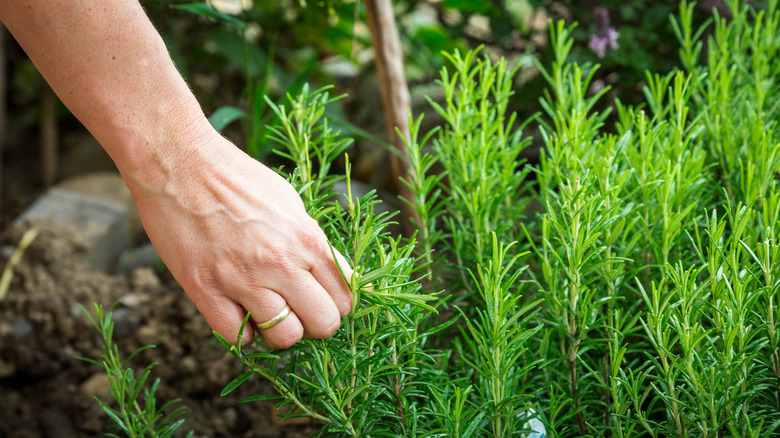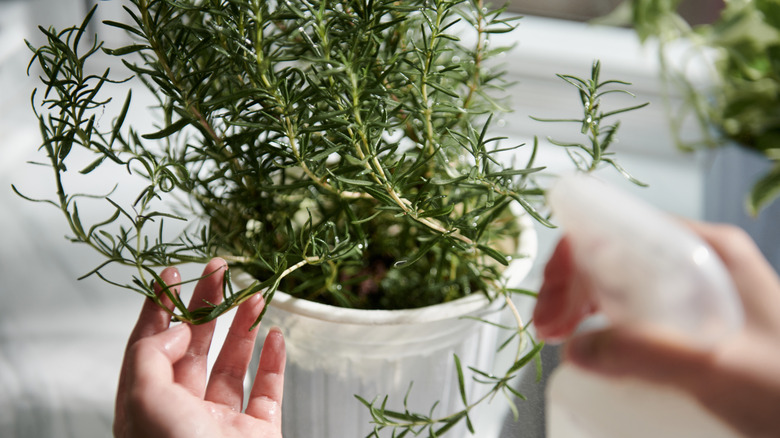Keep Your Rosemary Plants Thriving All Season Long With A Simple Watering Tip
Rosemary (Rosmarinus officinalis) is arguably one of the most popular herbs to grow in a home garden. Not only is it durable and easy to grow overall, but the plant is also prized for its interesting needle foliage and piney scent. Despite this and its overall resistance to drought and disease, this doesn't mean rosemary is completely immune to plant problems. When considering how to care for your rosemary herb plant, you will need to make sure it gets enough sunlight, and that it doesn't show signs of pests or fungal diseases. It's also important to avoid overwatering rosemary to ensure your plants thrive throughout the whole season.
While rosemary is pretty tolerant of drought, this herb is less tolerant of too much water. In fact, overwatering rosemary is considered the most common cause of death in this type of plant. Too much water can increase the risk of root rot development, which then lead to irreversible plant decline. It's important to be aware of what is root rot and how to deal with it, but it's even more crucial to help prevent this plant disease in the first place. The best way is to stick with a sensible watering schedule for rosemary to keep these plants healthy. Unfortunately, once rosemary develops root rot, it is challenging to treat this disease in herbs, and you may be forced to get rid of any affected plants to prevent the spread of the fungus to others in your garden.
The best watering schedule for rosemary plants
As a general rule of thumb, rosemary requires water at least once every week or two. There are exceptions, such as severe drought or exceptionally high precipitation in your area. Aside from a general watering schedule, you will also need to determine whether your rosemary plants actually need water. At first glance, it can be difficult to tell if rosemary needs watering. This is due to the fact that, unlike other plants that rosemary plants do not exhibit wilting foliage and other signs of dehydration that other plants might. The key here is to check for soil moisture, and to avoid adding more water if it is still wet.
To prevent root rot and other diseases that might affect rosemary, you should also refrain from watering these plants until they are completely dry from previous sessions. This is among the mistakes to avoid when watering your garden, but you will also need to take care with indoor plants, too. Indoor rosemary plants during the winter months can sometimes exhibit browning on the tips of their leaves. This is due to a lack of sun and humidity, and not too little water. You might instead address this problem with frequent misting and by increasing humidity around the plant as much as possible.

